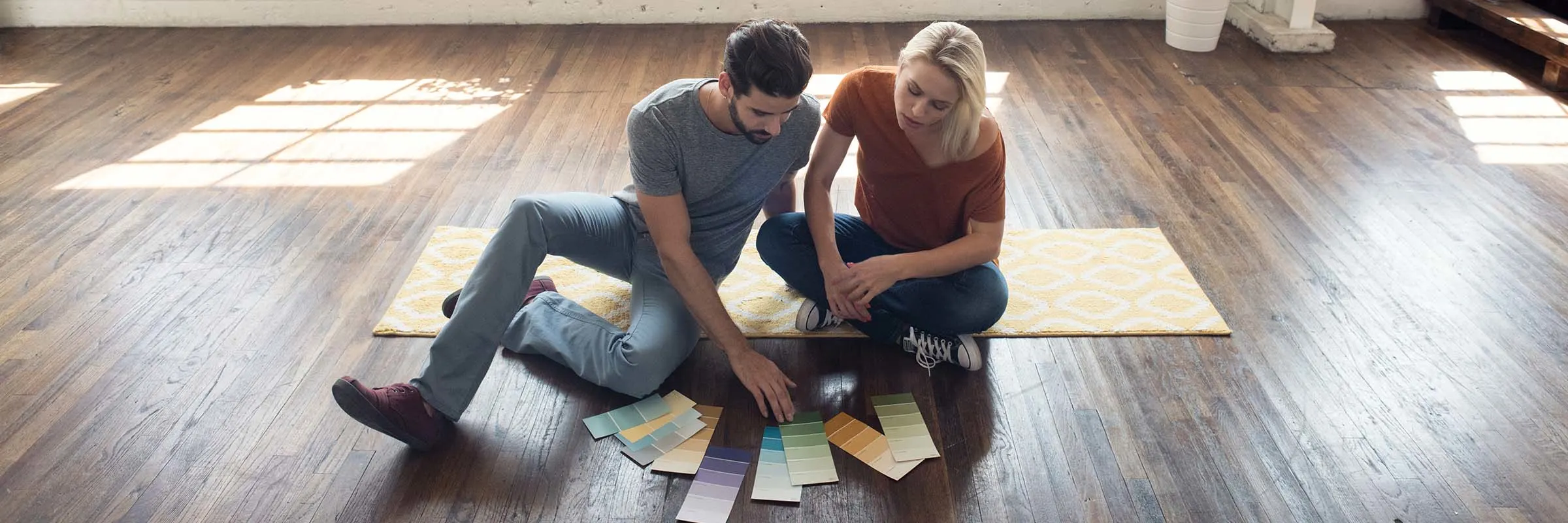What we'll cover
What you need to know before buying a home
Why a home inspection is important
The benefit of neighborhood comps
Anyone who's ever watched a show about house hunting can tell you that shopping for a home can push people to the edge. And when there's a particularly tough housing market to navigate, you might be anxious about becoming a homeowner. Asking the right questions can ensure you find the right house for your needs and that it's a sound investment.
Read more: Find the right mortgage for your first home with this quick quiz.
What is included in the home purchase?
While house hunting, you might spy a brand-new refrigerator or the stackable washer and dryer of your dreams. But just because these items are in a home during an open house, doesn't mean they're included in the home purchase.
Prospective buyers need to confirm what is actually included in the sale before they sign on the dotted line. Always ask so you avoid surprise expenses you'll need to account for later on as part of the total cost of home ownership. And keep in mind, you might be able to negotiate to include an appliance you have your eye on.
What insurance claims were made by previous tenants or owners?
Don't buy a house without taking a close look at its history. That background check should include a home inspection and asking the seller to share any insurance claims they made (or those filed by tenants). Don't skip this step!
This step could uncover previous damage (fire, water, mold, etc.) and give you a heads up on any problems — and additional repairs or costs — that may arise once you have keys in hand. Unless you're building a custom home, you probably won't find a perfect house, but you can walk into homeownership with all of the essential information.
Tip: In addition to insurance claims, ask for seller disclosures. There may be some overlap with insurance claims but they should include any damage and potential hazards.
How old are the roof and windows?
The cost of repairing or replacing a roof or windows can be shocking for first-time homebuyers. By asking ahead you can either avoid that cost for now or make sure you budget accordingly.
Knowing when your roof was last updated can make a huge difference in mapping out the future expenses you may incur. Barring any severe weather or disaster (and depending on what your roof material is), your typical shingles need to be replaced anywhere from every 20 to 30 years and the cost can be anywhere from around $5,800 to $13,000, on average.
Everyone loves a deal, but it's hard to know if you're really getting one unless you have a clear view of the market.
What additions and major renovations are allowed (and what work has already been done)?
If you have DIY dreams for future home improvement projects in your new abode, look into local zoning laws before you make a purchase. Some communities have restrictions on what work can be done. Past work done on the house may also restrict what you can do in the future. First, confirm you'll be able to make the changes you have in mind … then you can start mapping out your dream kitchen reno.
How much have other homes in the area sold for?
Everyone loves a deal, but it's hard to know if you're really getting one unless you have a clear view of the market. Fill in the blanks with your own research on the value of other homes in the area.
Your real estate agent will have access to this information or you can use digital tools like ComeHome — a people-focused database for house hunters — to scan the area for home values. With a full picture of home prices in the area you can better negotiate a competitive offer. This information can also give you an idea of its future value.
From house hunter to homeowner
Buying a home is a big step. Hunting down your preferred property can be fun but don't forget to collect all of the important details along the way. Going beyond the surface and diving deep with these questions can help you make the right decision on your first home.


